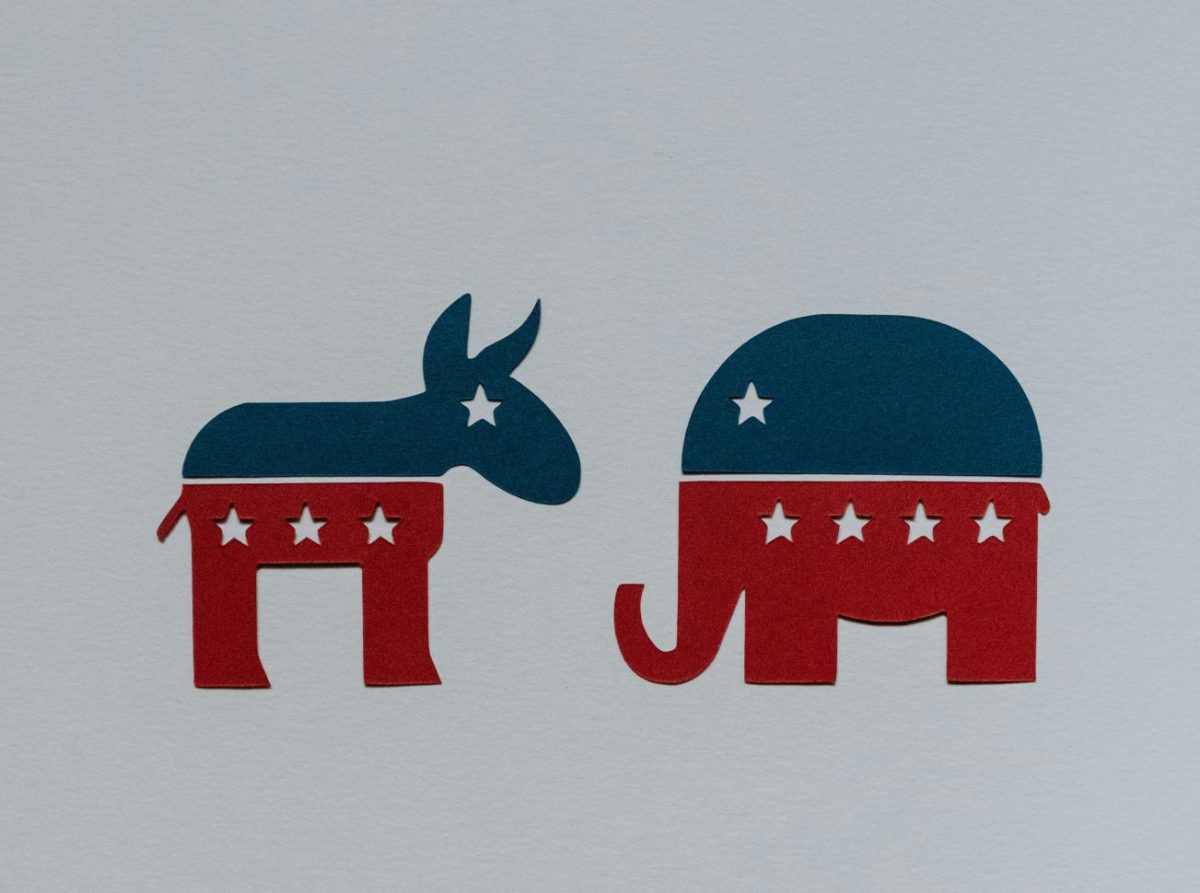High schoolers not caring about politics is not a new concept, but it is one, regardless, that gets brought up every election year. Some students are super energized by politics, current events, and voting, but what seems like a vast majority find politics outright unappealing. How come?
Thinking of American politics as a spectrum, like a number line to represent the ‘left’ and ‘right,’ it feels as though debates, opinions, and issues we face in this country have migrated from the center out to the extremes. Students, and frankly most Americans, cannot help but feel like their opinion must be “one or the other.” The rising expectation that ideas and policies should be black and white ultimately disgusts young voters. It tends to make them experience a surprising amount of pressure when asked for their stances, having to decide to be ‘pro’ or ‘anti’ something. Most people, young or not, find polarization discouraging, but for students who will be voting for the first time, or just paying more attention to this election, it could push them away from politics for more than just the next four years. The ramifications of a disenchanted electorate a decade from now will only be fully realized when that time comes, but disillusionment in Gen Z starts with this election, if it did not begin already with the 2020 election.
What students see on social media molds their opinions to a worrying degree, and that is where polarization reaches new lows. While a lot of students resist pressure they receive from social media, resisting that pressure is where they become disillusioned with politics. The “one or the other” agenda festers like a cancer on all social media platforms. Some get wrapped up in it, adopting the opinion of what the TikTok and Instagram algorithms push down their throats the most, but for those who are aware of it happening, they are increasingly discouraged to ever participate in politics or educate themselves on issues in America and abroad. To many students, the fear is that A: educating themselves will only make reality seem more bleak than it already is, and B: they too will adopt an extremist opinion, and be no better than who they are annoyed by when scrolling through their socials.
Political polarization is all around us clear as day, but there is one huge reason that tends to go uncaptured: security. Suburban students, regardless of the results of elections, will likely always have security in a multitude of aspects of their lives: their parents’ jobs, their rights, their education, their religion, their speech. It takes away an, admittedly extreme, incentive to participate in national and local elections. Although students who live comfortable lives in the suburbs feel the effects of inflation, high gas prices, etc., ultimately it is at most a bother to them. A student here, in north Phoenix, is nowhere near as exposed to harsh economic realities as a student further south, thus applying little to no pressure to get involved in politics. Many suburban, upper middle class students are not looking to expand their rights either. Low ethnic and religious diversity removes what pressure there would be to advocate, protest, and vote in the interest of those from different backgrounds.
One final turnoff for politics are labels. There is no better way to push away Gen Z than give them a label: liberal, conservative, democrat, republican, etc. It is a list of insults to young adults, assigning them to a word or faction based on one or several opinions they have. Virtually everyone has opinions that are on both sides of the political spectrum. It is a huge logical fallacy: assuming that if a person leans left or right on a single policy, they will lean the same way on any or all other policies. Faction assumption is another product of the divisive “one or the other” doctrine of modern American politics, and it is annoying. Even if someone really does align a majority of their opinions with a single group- progressive, libertarian, conservative, etc- the idea of labeling oneself as a member of a party or group is extremely unattractive. Gen Z does not want to cut themselves off from others socially, and belonging to a party would do just that: separate them.
Gen Z voter registration and participation is on the rise. In fact, Gen Z voter turnout in 2022 was higher than that of Millenials and Gen X when they made up the same age bracket, according to Tufts CIRCLE, a non-partisan research organization. Yes, it contradicts the thesis that Gen Z is disinterested in politics, but the feeling in the vast majority of the population is that politics are a sensitive topic at the least. Maybe Gen Z is blooming late, or maybe it will turn out to be a largely apolitical group in adulthood. Whichever the case, politics are a rough subject for young people, even those who plan to vote, across the country.




